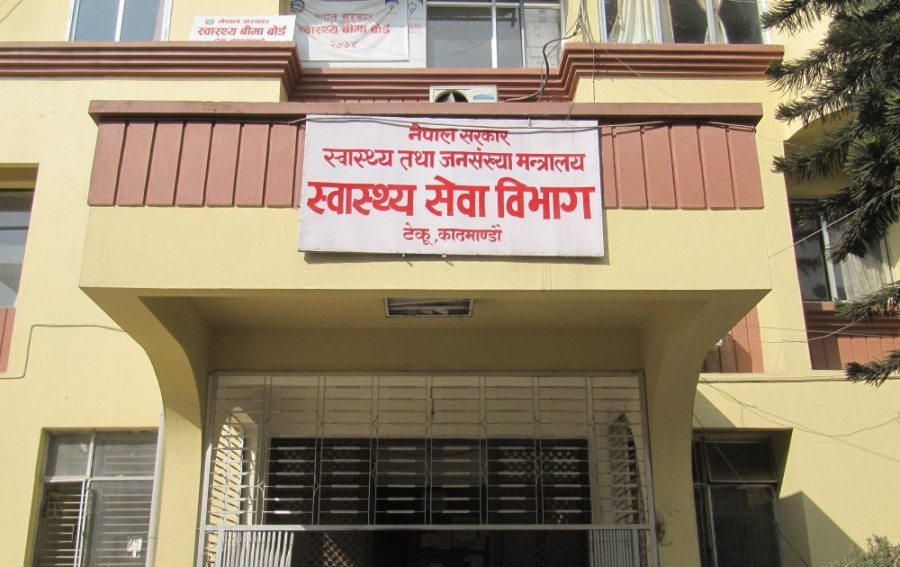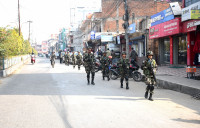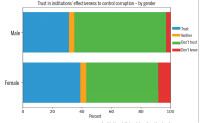National
Officials confirm coronavirus in Nepali man who returned from Wuhan
Specimens collected from the man have come back positive from a WHO laboratory and officials are now attempting to trace his location and activities.
Arjun Poudel
Officials on Friday confirmed that specimens from a Nepali man suspected to have contracted a new strain of coronavirus, had tested positive, marking the entrance of the virus into the country.
Dr Hemanta Chandra Ojha, an official at the Epidemiology and Disease Control Division, said that samples from a 31-year-old Nepali student who had returned from Wuhan, China earlier this month, had come back positive for the new virus from a World Health Organisation laboratory in Hong Kong. The novel coronavirus originated in the central Chinese city of Wuhan, the capital of Hubei province.
Read: What do we know about the new strain of coronavirus, and should we be worried?
The man, who is doing his PhD in Wuhan, had returned from the Chinese city on January 5. He had visited the hospital complaining of respiratory problems and was admitted on January 13. He was given medication and once his health condition improved, he was discharged five days later.
The hospital had taken specimens—throat swabs and blood samples—from the patient and sent it to the WHO’s Collaborating Centre in Hong Kong on Tuesday.
“We have received the report and specimens have tested positive,” said Ojha. “We are now in the process of searching for the man and his family in order to test them for further infection.”
Ojha said that they had no indication as to where the man had gone and his activities over the past five days, ever since he was discharged on January 17.

First identified in Wuhan in December last year, the virus, dubbed ‘novel coronavirus’ by the WHO causes symptoms that are akin to pneumonia and Severe Acute Respiratory Syndrome. The virus has so far claimed 26 lives and has infected nearly 900 people across the world, according to the international media. The virus has spread to Taiwan, South Korea, Singapore, Japan and as far as the United States.
The death toll from the virus has increased rapidly over the week. On Tuesday, Chinese authorities had confirmed six deaths. By Friday, 26 deaths had been confirmed. At least 10 Chinese cities, including Wuhan, have been placed under lockdown, restricting the movement of some 30 million people. Numerous countries, including Hong Kong, Thailand, Malaysia, Singapore and South Korea, have instituted mandatory screenings for Chinese travellers at airports.
In Nepal, the authorities have been slow to react. Airport screenings have yet to be made mandatory. A health desk with a doctor and paramedics was reinstituted only recently, after the WHO issued an alert. However, images of the health desk shared on social media showed lettering from when there was an Ebola outbreak in Africa a few years ago.
Neither the airport nor the Sukraraj Tropical and Infectious Disease Control Hospital has a proper, functioning isolation ward for patients. A WHO team had inspected the 10-year-old isolation ward at the Sukraraj Hospital and recommended a number of improvements, including the construction of a ramp and the installation of high-efficiency particulate air (HEPA) filters.
However, Dr Basudev Pandey, director of the hospital, had told the Post on Wednesday, that it will take millions of rupees to bring the isolation ward into operation. The ward, which was set up with the support of the World Bank at the time of the avian flu epidemic, has not housed a single patient.
Nepal is especially vulnerable to epidemics like the coronavirus, which spread quickly through the air. A lack of detection infrastructure, both at the airport and in hospitals, means that carriers could easily spread the disease before they are detected and quarantined. Thousands of Chinese tourists also visit Nepal every year, with the country aiming to attract 350,000 Chinese tourists under its Visit Nepal 2020 campaign.
Read Related Stories:
- Nepali man returned from Wuhan lays bare government preparedness to contain deadly viruses
- Even as coronavirus cases rise, Kathmandu airport has not implemented mandatory screenings
- Health workers at Teku hospital to get precautionary training against coronavirus




 20.96°C Kathmandu
20.96°C Kathmandu















